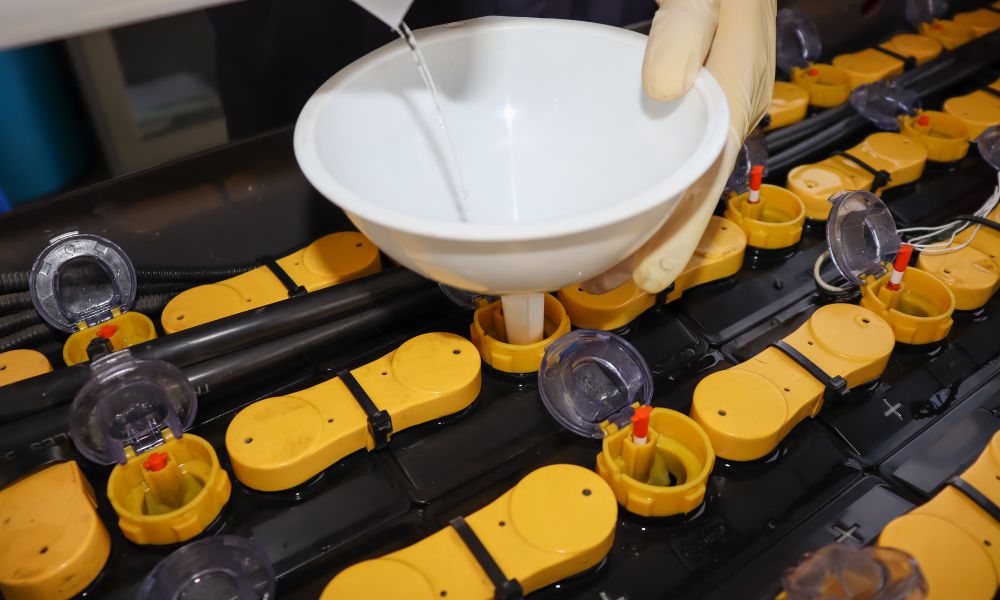
 business
business 
Lead-acid batteries have an electrolyte solution that contains sulfuric acid and water. One crucial aspect of maintaining a lead-acid forklift battery is watering it to ensure optimal electrolyte levels. Read on to understand why forklift battery watering is important for the power source’s longevity and performance.
Proper watering maximizes the battery’s lifespan. Without good watering practices, lead sulfate crystals can build up in a process called sulfation. Sulfation is one of the biggest forklift battery mistakes to avoid at all costs because it reduces the battery’s capacity, leading to decreased runtimes and, potentially, premature failure.
You can keep the electrolyte at the recommended level by adding distilled or deionized water—whichever your manufacturer recommends—to the battery cells. The electrolyte allows for efficient chemical reactions and minimizes the formation of lead sulfate crystals.
Low electrolyte levels can result in an insufficient power supply and decrease lift truck performance. Inadequate power can cause the forklift to move slower, lift loads less efficiently, and have a lower rate of acceleration.
Regularly watering forklift batteries can keep the electrolyte level within the appropriate range for safe and maximum performance. A forklift operating at its intended capacity enhances productivity and operator safety.
Watering is essential for the battery to operate safely, and workers must wear PPE when watering batteries. Splash goggles, face shields, aprons, and gloves can prevent sulfuric acid splashes from reaching the skin and eyes.
Forklift battery watering is important because it prevents damage to the battery, lift truck, and environment. Use the proper watering technique to minimize harm—this includes watering after charging the battery, using distilled or deionized water, and ensuring water levels are correct in all battery cells.
Improper watering can lead to irreversible damage. Overfilling the cells with water can cause electrolyte overflow, resulting in acid spills and corrosion. Watering before the battery is charged can cause overflow, too.
Proper battery watering enhances battery life and performance and prevents damage. Train employees to water lead-acid batteries safely and correctly to ensure your forklifts operate efficiently.
24World Media does not take any responsibility of the information you see on this page. The content this page contains is from independent third-party content provider. If you have any concerns regarding the content, please free to write us here: contact@24worldmedia.com